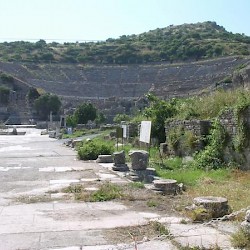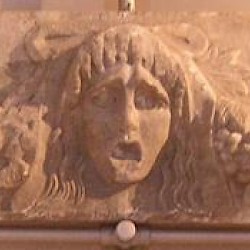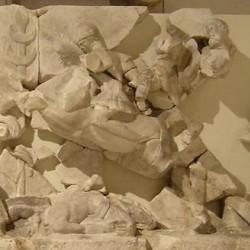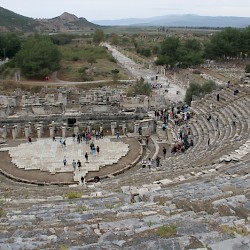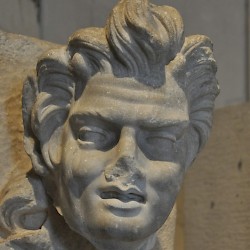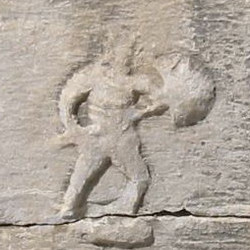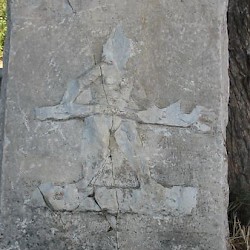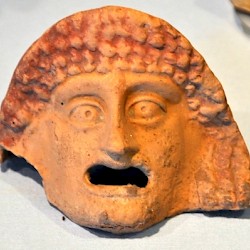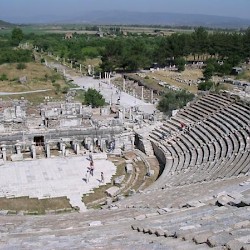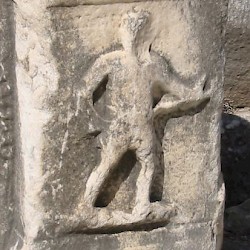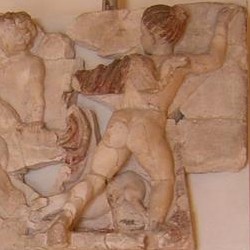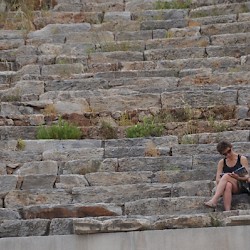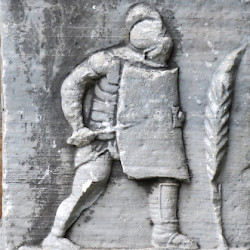Ephesus, Theater
Ephesus (modern Selçuk): ancient Greek town in western Turkey, one of the largest and best excavated cities of the ancient world.
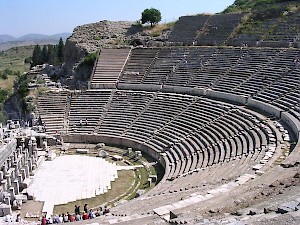
The theater of Ephesus is quite famous because it is the place where the apostle Paul had to defend himself against accusations of atheism.
Its construction was started in the Hellenistic age, but the Ephesians made a beginning with its renewal during the reign of the emperor Claudius (r.41-54). Under Nero (r.54-68), the stage was constructed. The decorations can be dated to the reign of Trajan (r.98-117). About 24,000 people could find a seat and watch the spectacles.
The Austrian archaeologists who started to excavate Ephesus in 1895 took several parts of the decoration of the ancient city to Europe (in 1906), where they are put on display on the lovely Ephesos Museum in Vienna, a series of quiet exposition rooms in the former palace of the Habsburg emperors. Several reliefs of gladiators may have belonged to the decoration of the theater as well (cf. the theater of Miletus).
